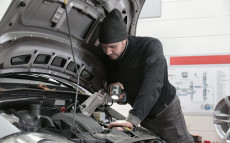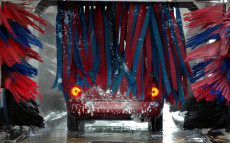- pathfindersAI
- Job Profile
Home Appliance Repairers
Summary
Home Appliance Repairers: A Dynamic Career Path
What They Do
Home appliance repairers, often referred to as appliance technicians or repair specialists, play a crucial role in maintaining the functionality and longevity of domestic appliances. These skilled professionals troubleshoot, diagnose, and fix a wide range of household devices, from refrigerators and ovens to washing machines and air conditioners. The ever-evolving nature of appliance technology requires these repairers to continually update their knowledge and skills to stay ahead in the field. They not only extend the lifespan of appliances but also contribute to sustainability by reducing the need for replacement and minimizing electronic waste.
Job Responsibilities
The responsibilities of home appliance repairers are multifaceted and require a thorough understanding of both mechanical and electronic systems. These responsibilities typically include inspecting and testing appliances to identify issues, replacing faulty components, and performing routine maintenance to prevent future problems. They must consult wiring diagrams and schematics, use specialized tools and equipment, and adhere to safety protocols to ensure that repairs are conducted effectively and safely. Additionally, home appliance repairers often interact with customers to explain the nature of the problem, propose solutions, and provide cost estimates, requiring a blend of technical expertise and interpersonal skills.
Essential Skills
To excel as a home appliance repairer, several essential skills are needed. First and foremost, strong problem-solving abilities are crucial as technicians must diagnose and fix complex issues under time constraints. Mechanical and electrical proficiency is necessary to understand how various appliances operate and to repair them correctly. Attention to detail is paramount, as small errors can lead to larger problems or safety hazards. Good communication skills are important for customer interactions, allowing technicians to explain issues and solutions clearly. Lastly, staying organized and maintaining a systematic approach to repairs ensures efficiency and effectiveness in their work.
Educational Pathways
Aspiring home appliance repairers can pursue various educational pathways to enter this field. While a high school diploma or equivalent is typically required, additional vocational training or certification can provide a competitive edge. Many community colleges and technical schools offer programs in appliance repair, which include both classroom instruction and hands-on training. These programs often cover fundamental topics such as electronics, refrigeration, and mechanical systems. Furthermore, some repairers may choose to apprentice under experienced technicians to gain practical experience and industry insights. Certification from professional organizations, such as the Professional Service Association (PSA) or the International Society of Certified Electronics Technicians (ISCET), can further validate a repairer's skills and commitment to the profession.
Career Prospects
The career prospects for home appliance repairers are promising, with consistent demand driven by the ubiquity of household appliances in modern life. Many repairers find stable employment with repair service companies, appliance retailers, or manufacturers. There are also opportunities for self-employment, allowing technicians to start their own businesses and enjoy the flexibility and potential financial rewards that come with entrepreneurship. As technology continues to advance, home appliance repairers who stay updated with the latest innovations will find more opportunities for specialization and advancement, including roles in smart home technology and energy-efficient appliances.
Conclusion
In conclusion, a career as a home appliance repairer offers a blend of technical challenge and practical satisfaction. These repairers ensure the continued functionality of essential household devices, contributing to both convenience and sustainability. With diverse job responsibilities, essential technical and interpersonal skills, and various educational pathways, this profession promises stability and growth. Whether working for established companies or venturing into self-employment, home appliance repairers can look forward to a dynamic and rewarding career that evolves with technological advancements.
Video
Compensation
| State | Median Salary | Median Hourly | Positions |
|---|---|---|---|
| SC | 35,210 | 16.93 | 330 |
| SD | 33,750 | 16.22 | 160 |
| TN | 48,160 | 23.15 | 540 |
| TX | 44,350 | 21.32 | 2,160 |
| UT | 40,620 | 19.53 | 330 |
| VT | 47,350 | 22.77 | 90 |
| VA | 48,560 | 23.34 | 1,120 |
| WA | 55,150 | 26.52 | 760 |
| WV | 37,690 | 18.12 | 50 |
| WI | 48,360 | 23.25 | 480 |
| WY | 47,670 | 22.92 | 100 |
| CT | 48,880 | 23.50 | 710 |
| AL | 37,890 | 18.21 | 270 |
| AK | 51,990 | 24.99 | 50 |
| AZ | 42,070 | 20.23 | 780 |
| AR | 38,550 | 18.53 | 240 |
| CA | 47,110 | 22.65 | 2,450 |
| CO | 49,340 | 23.72 | 630 |
| DE | 49,570 | 23.83 | 120 |
| FL | 47,770 | 22.97 | 3,040 |
| GA | 44,180 | 21.24 | 1,030 |
| HI | 62,990 | 30.28 | 120 |
| ID | 45,340 | 21.80 | 200 |
| IL | 47,650 | 22.91 | 1,470 |
| IN | 46,510 | 22.36 | 760 |
| IA | 44,700 | 21.49 | 550 |
| KS | 42,890 | 20.62 | 320 |
| KY | 44,350 | 21.32 | 190 |
| LA | 35,820 | 17.22 | 280 |
| ME | 45,750 | 21.99 | 180 |
| MD | 49,280 | 23.69 | 360 |
| MA | 57,830 | 27.80 | 660 |
| MI | 49,240 | 23.67 | 620 |
| MN | 57,780 | 27.78 | 620 |
| MS | 42,640 | 20.50 | 250 |
| MO | * | * | 850 |
| MT | 41,600 | 20.00 | 110 |
| NE | 35,060 | 16.86 | 150 |
| NV | 59,240 | 28.48 | 150 |
| NH | 52,270 | 25.13 | 230 |
| NJ | 49,130 | 23.62 | 1,310 |
| NM | 43,970 | 21.14 | 100 |
| NY | 47,110 | 22.65 | 1,000 |
| NC | 39,100 | 18.80 | 1,130 |
| ND | 48,420 | 23.28 | 160 |
| OH | 43,780 | 21.05 | 820 |
| OK | 38,780 | 18.64 | 400 |
| OR | 46,260 | 22.24 | 460 |
| PA | 48,510 | 23.32 | 930 |
| RI | 46,280 | 22.25 | 100 |
Similar Occupations
In this area you will find other occupations that are close to the one you were viewing in tasks, knowledge and work environment. If the primary job profile you are viewing isn't quite to your liking, take a look around and see what else is available.
Basic and Premium Accounts have more alternative occupations available than the Free account.

Automotive Service Technicians and Mechanics - 49-3023.00
Automotive Service Technicians and Mechanics diagnose, maintain, and repair vehicles by inspecting and working on various components such as engines, brakes, transmissions, and electronics. They ensure automobiles are safe and efficient by conducting routine maintenance, performing complex repairs, and using specialized tools and diagnostic equipment.
-
$47,770/yr
Median Pay -
676,570
Number of Jobs

Cleaners of Vehicles and Equipment - 53-7061.00
Cleaners of Vehicles and Equipment are responsible for cleaning, washing, and polishing vehicles, machinery, and equipment using specialized tools and cleaning agents. They ensure that the items they work on are free of dirt, grime, and any other contaminants to maintain their appearance and function efficiently.
-
$34,150/yr
Median Pay -
365,290
Number of Jobs